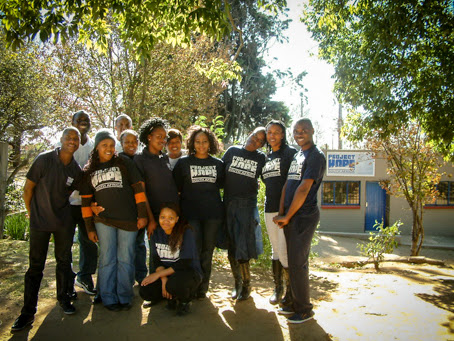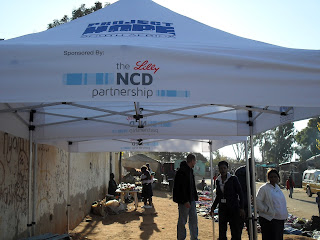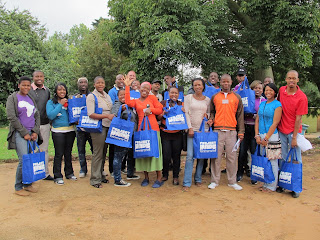A couple of weeks ago now we had the privilege of hosting a delegation from our Project HOPE HQ in Millwood, VA as well as representatives from the Project HOPE Board.
This team led by Dr John Howe, President & CEO of Project HOPE did a three country two week intense visit with the aim of getting to understand the various programs that Project HOPE runs on the Africancontinent.
 We had the privilege of hosting the delegation for a couple of days here in Johannesburg where they were able to come out to Zandspruit and visit our program, get to know our staff, take a tour of Zandspruit on foot to appreciate the complexities of township life as well and to meet with some of our patients at the HOPE Centre clinic. They were also able to visit the City of Joburg Masakane clinic and see some of the challenges that are faced there on a daily basis
We had the privilege of hosting the delegation for a couple of days here in Johannesburg where they were able to come out to Zandspruit and visit our program, get to know our staff, take a tour of Zandspruit on foot to appreciate the complexities of township life as well and to meet with some of our patients at the HOPE Centre clinic. They were also able to visit the City of Joburg Masakane clinic and see some of the challenges that are faced there on a daily basis

 The day was a wonderful success with the delegation leaving having a much better understanding of the scope and size of the program and the immense need for Project HOPE to work in Zandspruit and the surrounding area.
The day was a wonderful success with the delegation leaving having a much better understanding of the scope and size of the program and the immense need for Project HOPE to work in Zandspruit and the surrounding area.
After a long day in the baking sun, we all went back to the Hyatt Hotel in Rosebank where Project HOPE hosted a dinner event attended by 100 senior executives who represented all but a couple of international pharmaceutical companies working in South Africa, government, the NGO sector and academia. The aim of the evening was to highlight the work that Project HOPE is doing around the world in non communicable diseases as well as to specifically talk about our baseline survey findings from the HOPE Centre program here in South Africa.
Very rarely does an event like this occur, and as the diabetes world is fairly small and people usually move from one company to another it was like a big reunion for many attendees!
Dr Howe gave the opening address where he talked about our long history with working together with corporate organisations to improve the health of disadvantaged communities - some of those relationships are over 50 years old.
Ms. Sandhya Singh the Director for Chronic Diseases, disabilities and geriatrics at the National Department of Health shared with us the governments strategy for how they will go about tackling this growing problem of NCDs here in South Africa.
Professor Rheeder then came up and shared our baseline findings from our initial community survey and screening days. If you would like a copy of this then please contact me and I will be happy to post a copy to you.
I then closed off the evening sharing some of the real challenges that diabetic and hypertensive patients face living in a township like Zandspruit.
The dinner was a roaring success with many opportunities now to follow up with companies who would like to come and see our work in Zandspruit and potentially partner with us in the future.
If you would like to come and visit our site please do not hesitate to contact me at slawson@projecthope.org
Thanks for reading!
















































